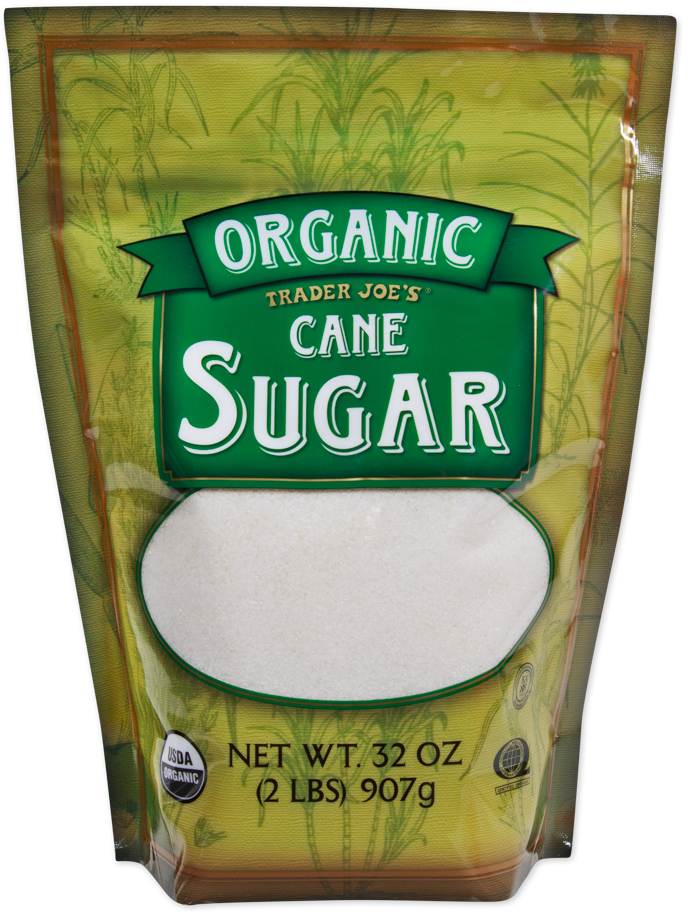The Journey of Cane Sugar Processing: From Harvest to Crystals
The Journey of Cane Sugar Processing: From Harvest to Crystals
Blog Article
A Comprehensive Summary of the Health and Economic Effects of Cane Sugar Processing on Neighborhood Communities
Cane sugar handling plays a crucial role in forming the financial landscape of neighborhood neighborhoods, using work chances and stimulating ancillary industries. The wellness implications connected with high sugar intake can not be forgotten, as they add to rising rates of weight problems and diabetic issues.
Economic Advantages of Walking Stick Sugar Handling
Walking cane sugar handling provides significant financial benefits that expand past the immediate farming market. The growing and handling of sugarcane produce numerous work chances, from farming to manufacturing and circulation. This employment generation not just supports local economic climates however also cultivates neighborhood development by giving stable earnings resources for family members.
Moreover, the sugar market boosts secondary services, consisting of transportation, tools supply, and packaging solutions (Cane Sugar Processing). As these fields expand, they add to an extra robust financial framework, enhancing general community strength. The export possibility of refined cane sugar better magnifies economic advantages, placing regions as competitive gamers in worldwide markets
Financial investment in contemporary handling centers can cause enhanced performance and performance, thus decreasing waste and maximizing resource usage. This shift not just benefits the neighborhood economic situation yet likewise sustains sustainability initiatives by decreasing ecological effects.
In addition, the earnings generated from walking stick sugar handling can be reinvested in neighborhood infrastructure, education, and healthcare, advertising all natural area growth. On the whole, the economic benefits of walking cane sugar handling are diverse, providing a foundation for enduring success in farming areas.
Wellness Risks Related To Sugar Consumption
Extreme sugar usage positions considerable wellness threats that necessitate significant focus. High intake of sugarcoated, especially from processed foods and beverages, has been linked to various health difficulties. Among one of the most important issues is excessive weight, as sugary diet plans contribute to a boosted caloric consumption without supplying important nutrients. This extra can result in metabolic disorders, consisting of type 2 diabetes, which has become progressively prevalent in both youngsters and grownups - Cane Sugar Processing.
Additionally, high sugar usage is associated with heart disease. Elevated blood glucose degrees can lead to insulin resistance, a forerunner to various heart-related concerns. Additionally, sugar can have detrimental impacts on oral wellness, leading to tooth cavities and gum condition, as microorganisms in the mouth grow on sugar, generating acids that deteriorate tooth enamel.
Furthermore, emerging research suggests a prospective link between high sugar usage and psychological health and wellness conditions, such as clinical depression and anxiety. As areas come to grips with these health threats, it becomes necessary to promote understanding and motivate healthier dietary selections. Resolving sugar intake is vital not just for specific health and wellness yet additionally for the general health of neighborhood communities, emphasizing the demand for comprehensive public health and wellness techniques.
Environmental Impacts of Sugar Production
Frequently neglected in conversations regarding sugar's effects is the substantial environmental impact of sugar manufacturing. The growing of sugarcane frequently demands considerable land usage, bring about logging, loss of biodiversity, and interruption of local ecosystems. The conversion of woodlands and wetlands into sugar haciendas can result in environment destruction, threatening numerous types and changing eco-friendly balance.
Furthermore, sugar production is resource-intensive, consuming significant amounts of water for watering. This can result in depletion of local water sources, adversely influencing both farming techniques and community accessibility to tidy water. In addition, using chemical fertilizers and pesticides in sugarcane farming can contribute to soil deterioration and water air pollution, as runoff from these chemicals gets in nearby rivers and lakes, influencing aquatic life and human health.
The environmental impact includes the handling stage, where energy usage and waste generation more aggravate eco-friendly concerns. Air pollution from shedding sugarcane fields, together with greenhouse gas exhausts, add to climate adjustment. As such, the environmental implications of sugar manufacturing warrant significant consideration, prompting stakeholders to adopt more sustainable practices to alleviate these negative results on regional ecological communities and neighborhoods.
Job Creation and Community Development
The environmental challenges positioned by sugar manufacturing are usually reversed by its possibility for economic advantages, especially in job creation and area advancement. The cane sugar market works as a substantial source of employment in lots of country areas, supplying tasks throughout various ability levels, from agricultural labor to handling and circulation duties. This work not only sustains individual families however additionally adds to the total financial vigor of regional communities.
Furthermore, the establishment of sugar handling facilities boosts secondary companies, such as transport solutions, devices supply, and upkeep service providers. As these companies flourish, they create additional tasks and reinforce neighborhood economies. The profits produced from the sugar sector additionally leads to boosted tax obligation earnings, which can be reinvested into area solutions such as facilities, education and learning, and health care growth.
Additionally, the sugar sector typically participates in community growth efforts, such as sustaining regional colleges learn the facts here now and wellness programs, therefore improving the lifestyle for homeowners. By fostering solid neighborhood connections and advertising financial development, the walking cane sugar handling industry plays an important function in uplifting neighborhood populations, making it a necessary element of sustainable development approaches in sugar-producing regions.
Balancing Health And Wellness and Economic Growth
In browsing the intricacies of cane sugar processing, a vital challenge depends on balancing health and wellness factors to consider with economic growth. The sugar market dramatically adds to regional economic situations by creating work, stimulating relevant markets, and boosting tax incomes. Nonetheless, the health and wellness effects connected with too much sugar consumption can bring about persistent diseases such as obesity, diabetes, and cardiovascular issues, which can burden public health systems and diminish labor force productivity.

Additionally, regulatory structures can play a critical role in directing industry practices in the direction of more lasting and health-conscious strategies. By cultivating partnership in between federal government bodies, health organizations, and the sugar sector, neighborhoods can browse the dichotomy of health and wellness and financial growth, making sure that the advantages of cane sugar handling are equitably shared while prioritizing public health and wellness.
Verdict
Finally, the handling of cane sugar provides both significant economic advantages and noteworthy health threats for neighborhood communities. While it promotes work production and stimulates regional development, the affiliated health problems, especially concerning obesity and diabetic issues, necessitate a mindful balancing act. By advertising responsible usage and investing in neighborhood education and learning and sustainable techniques, it is feasible to take full advantage of financial benefits while decreasing unfavorable health and wellness effects, thus ensuring a healthier future for neighborhood populaces.
In addition, sugar can have harmful impacts on oral health, resulting in tooth cavities and gum tissue condition, as additional info bacteria in the mouth grow on sugar, producing acids that deteriorate tooth enamel.
Resolving sugar intake is critical you could check here not only for individual health and wellness however additionally for the total well-being of local communities, highlighting the need for extensive public wellness approaches.
Often forgotten in discussions regarding sugar's implications is the significant ecological effect of sugar production. The health and wellness implications associated with too much sugar intake can lead to persistent conditions such as obesity, diabetes mellitus, and cardiovascular problems, which can problem public wellness systems and reduce labor force performance.

Report this page